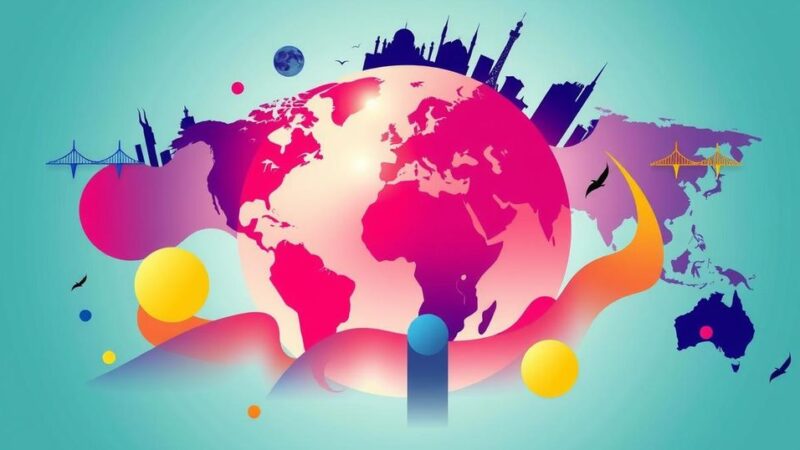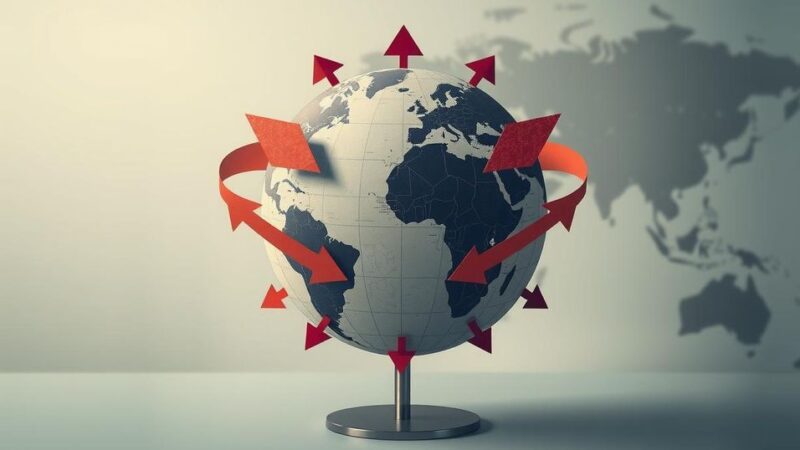The Democratic Republic of Congo plans to take legal action against technology companies, including Apple, to address the use of conflict minerals from eastern regions. The area is the largest supplier of tantalum, a critical component in electronics, which has attracted numerous militia groups vying for control. Pressure is mounting from both legal and public spheres as the DRC seeks accountability in the tech industry’s supply chains.
The Democratic Republic of Congo (DRC) is poised to initiate legal proceedings against major technology corporations, including Apple, with the objective of curtailing the utilization of conflict minerals extracted from its eastern regions. The eastern provinces of the DRC are recognized as the world’s preeminent source of tantalum, a vital element in the manufacturing of smartphones and other electronic devices, such as the iPhone. The lucrative tantalum trade has fostered the emergence of over 100 militia factions competing for dominion over the mineral resources, thereby worsening the violence pervasive in the region. Tantalum, known for its conductive properties and essential for electronic components, has transformed eastern Congo into a battleground for conflict. In 2024, the M23 rebel group seized control of Rubaya, the largest tantalum mine in the area. The DRC, supported by various experts and entities, including the United Nations, has accused Rwanda of providing military assistance to the M23 group in maintaining their hold over the mines, a claim that Rwanda has refuted. Other minerals such as tin, gold, and tungsten are similarly categorized as “conflict minerals” due to their contributions to militia activities and the ongoing violence. The United Nations has previously identified minerals sourced from Rubaya as “ineligible for trade” owing to their direct association with conflict-related violence. Yet, these resources persist in contaminating global supply chains, prompting the DRC’s demand for accountability, particularly from international technology firms. The DRC’s Foreign Minister, Therese Kayikwamba Wagner, has indicated that the government is deliberating legal options to combat the illicit mineral trade. While specific legal metrics remain undisclosed, Minister Wagner underscored that the DRC is exploring all avenues to hold corporations accountable for their role in exacerbating instability in the region. Although legal frameworks are under review, the government continues to formulate a concrete strategy to tackle this pressing issue. Earlier this year, Apple faced warnings from the DRC regarding potential implications for its supply chain related to militia-controlled conflict minerals. By May, legal representatives of the Congo accused Apple of not providing adequate proof that its supply chain was devoid of minerals sourced from conflict-affected areas. In response to these allegations, Apple has undertaken measures to dissociate itself from suppliers engaged in conflict mineral trading.
The Democratic Republic of Congo is a significant source of various minerals crucial for the global technology industry, particularly tantalum, used extensively in electronics. The ongoing conflicts in eastern Congo, fueled by the competition for these valuable resources, have drawn international attention and criticism. The government of the DRC is now taking steps to raise accountability among multinational corporations that may unwittingly contribute to the cycle of violence through their supply chains. This movement towards legal action signifies a growing emphasis on ethical sourcing and a heightened awareness of corporate responsibility in conflict-prone regions.
In summary, the Democratic Republic of Congo is seeking to implement legal measures against major technology firms, notably Apple, to address the issue of conflict minerals that are contributing to violence in the region. The increase in military activity and competition among militia groups for control of the lucrative tantalum trade has necessitated a call for greater accountability within the global supply chains that procure these minerals. As public pressure mounts alongside governmental actions, the situation underscores the need for a conversation on ethical sourcing and corporate responsibility in combating conflict-related exploitation.
Original Source: www.firstpost.com






